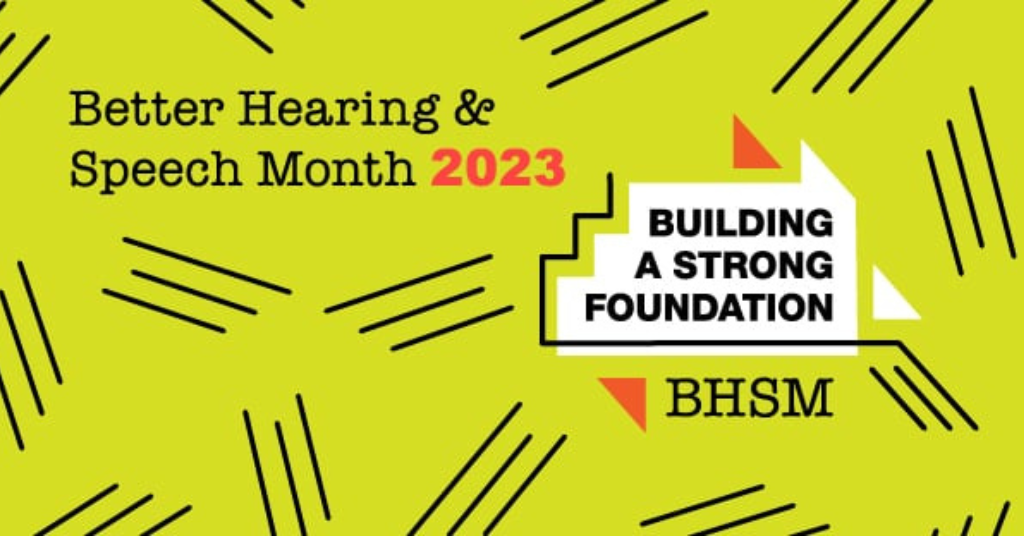
When “Never Mind” Goes Both Ways
September 29, 2015
Eloise Garland “takes over” Phonak’s Instagram
October 4, 2015“Can you really work as a hearing care professional with your bad hearing?”

This is the question that some friends of mine have asked me when we were talking about my job. De facto, this is not a completely fallacious train of thought. There was a time in the past when I was wondering the same: particularly around my A levels, which, as they say, open all the doors to working life. “Really? For everybody?” were my thoughts.
At that time, I was attending a regular school and could perfectly manage my congenitally profound hearing loss in both ears by simply sitting in the first or second row in the classroom. Moreover, I always had terrific, attentive teachers and friends around me for support if necessary. Things then became more challenging when I had to think about my upcoming working life.
Suddenly, I became aware of my handicap and as a consequence, I was wondering which professions I would be able to take up with my hearing impairment.
I want to give you an idea of what my hearing loss means. With hearing aids, I perceive sounds as you would perceive a pixelated and blurred picture, in which you can recognise the shape and the gender of the person but not the details like the pattern of the pullover, for example. Enough to be able to cope with it.
Without my hearing aids, there is simply silence. Even the noise of blood flowing or breathing is not audible, simply nothing. I know, this is scary to imagine for people with normal hearing. That is logical: humans are creatures of habit… But don’t worry, for me, not knowing any differently, I also see the positives — it is a great opportunity to relax and enjoy — I actually wouldn’t want to miss it!
There are some advantages: at work, for example, I regularly switch my hearing aids off to gain maximum concentration while working at the computer. My colleagues know how to bring me back “online”, emerging from the world of silence, by simply touching me or waving their arms in my visual field… Another benefit I regularly experience is during my camping holidays or, in the past, at music festivals: with the silence, when not wearing my hearing aids, I can always benefit from the recovery of a deep sleep during the night while life is otherwise pulsing around me!
Getting back to the topic of choosing a career: with my residual hearing, I am reliant on lip reading, which means that I must see my conversational partner’s face, at least from the side. Therefore, listening tasks such as phone calls are the most challenging. Is there any job where you do not have to make phone calls? Hmmmm… Also, jobs like being a translator in court procedures or a teacher who has to listen to the pupils dropped from my list of potential careers.
Rather by chance, I became a Hearing Care Professional (HCP), as the HCP which I had been going to since childhood was looking for an apprentice. With my high interest in audiology, one thing led to another and I completed my training as an audiologist. I have now been working for the brand Phonak at Sonova Headquarters in Switzerland for almost 10 years within various job roles, dealing with the conduction of studies on hearing impaired participants.. The studies all finally help to develop improved hearing solutions. Trying out new things, learning from them, discovering exciting findings, improving things and myself… this is my daily life. This is maybe how life works in general – all of life is a study.
Anyway, with my own hearing loss, I can put myself in the study participants’ shoes, which is beneficial when it comes to understanding and translating their wishes and needs. Furthermore, working at the heart of the newest technologies, I also regularly act as a study subject, evaluating the products from my point of view, which means that I have the privilege of testing the newest technologies available. Hence, I am able to contribute to their development by my individual input, which is greatly motivating and leads to a strong identification with the Phonak brand.
Furthermore, I am surrounded with engaged audiology professionals who consider me in such a way that I forget my hearing loss. Everybody is automatically aware that they need to face me while speaking. They arrange to meet me in person, instead of calling me, and during meetings, people kindly offer me the seat where I will be able to hear best. My colleagues use wireless technologies when talking over distance or repeat things I don’t understand without making a big deal of it. This shows they are professionals at heart and I think the question from the very beginning has been answered: “Yes, I can work as a hearing care professional with my bad hearing!”
At this point, I want to thank all my colleagues for their valuable day-to-day support in making this happen, I really appreciate it!




